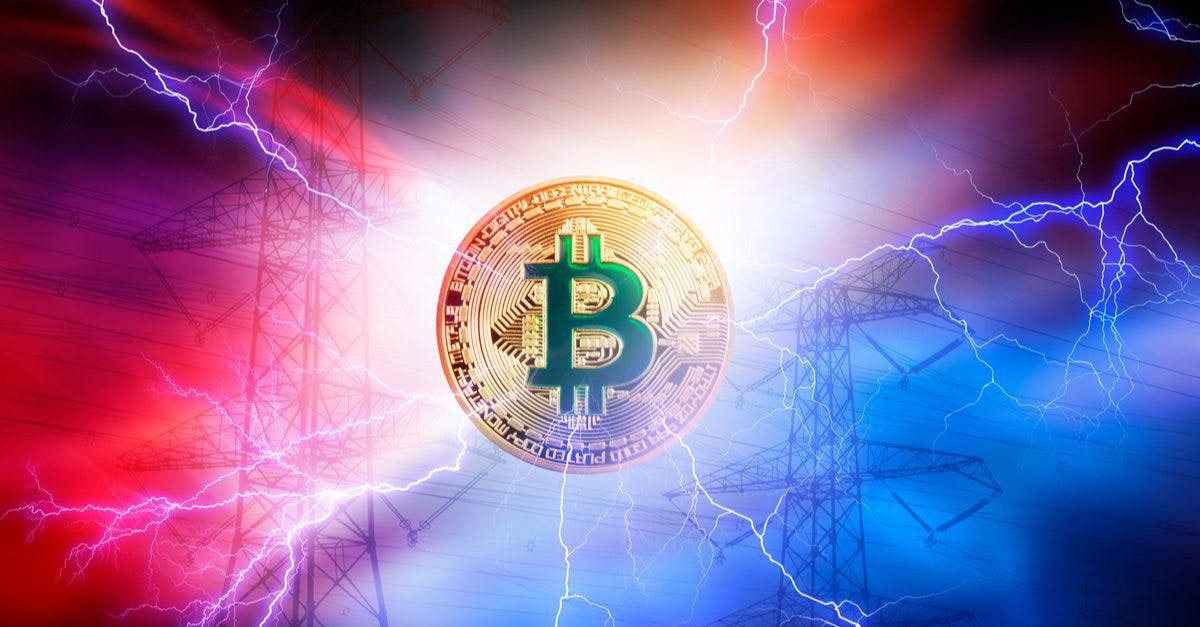Musk, Dorsey and Carter Make Case for a Greener Bitcoin
“There appears to be a positive trend in energy for bitcoin,” Elon Musk said during the “Bitcoin as a Tool for Economic Empowerment” session at The B-Word conference.

Source: Shutterstock
- Discussion about bitcoin electricity and energy consumption spilled over into multiple sessions during The B-Word conference.
- Consumers use industrial products like refrigeration, air conditioning, heating, clothes dryers and washing machines but don’t think critically about the energy requirements of those industries, Nic Carter said.
Bitcoin miners consume 0.26% of the world’s electricity production. At the same time, support for the cryptocurrency industry is growing as sustainability and the value for bitcoin increases, multiple speakers, including Elon Musk, Jack Dorsey and Nic Carter, said during The B-Word conference on Wednesday.
These same miners also consume 0.11% of the world’s energy production, according to 2021 data from the Bitcoin Mining Council.
Discussion about bitcoin electricity and energy consumption spilled over into multiple sessions during the conference with some speakers focusing on the details of mining itself and how energy is consumed during the process.
The Devil’s in the details
“Historically the vast majority of bitcoin’s energy expenditure derives from (initial) issuance,” said Nic Carter, general partner at Castle Island Ventures and co-founder and chairman of Coin Metrics, in the “Demystifying Bitcoin” panel during the event.
“It’s not the case that adding more transactions will increase the energy expenditure of the bitcoin network, as a lot of people mistakenly believe. Most of the energy consumption is the price of bitcoin and the value of new issuance that miners are collecting, not the number of transactions,” Carter said.
Most of the energy outlay, in bitcoin’s case, is in the function of the initial creation, he added. However, in terms of actual composition of the energy inputs, that’s trickier to assess because it’s hard to know if miners are using renewable energy to power their equipment.
“There appears to be a positive trend in energy for bitcoin,” Musk said during the “Bitcoin as a Tool for Economic Empowerment” session, where he was accompanied by Jack Dorsey, co-founder and CEO of Twitter, and the founder and CEO of Square, and Ark Investment Management CEO Cathie Wood.
In the past, Musk has flip-flopped between supporting and denouncing bitcoin due to environmental concerns.
But in the panel today, he said he was a bitcoin supporter and owner of the digital coin. However, he added that monitoring bitcoin’s energy consumption was important.
Still, he said he sees a positive shift in the mining industry toward renewable energy and said Telsa buyers may be able to pay using bitcoin once again. “I want to do a little more due diligence to confirm that the percentage of renewable energy usage is most likely at or above 50% and that there is a trend toward increasing that number,” he said. “If so, Tesla will most likely resume accepting bitcoin.”
Musk insisted that he hopes to see bitcoin succeed, and renewable energy will be a big part of that.
Dorsey noted, “Bitcoin is also incentivizing a lot of innovation in the energy space and just looking at unused energy. Just imagine all the unused energy that is just being wasted every single day.”
Comparing apples to oranges
While bitcoin can scale up the number of transactions or the value of transactions, it doesn’t have a linear proportional effect on the energy miners are consuming, Carter said.
Additionally, bitcoin’s energy consumption is 12 times smaller than electrical devices that are always on in US households, according to a Galaxy Digital report. So, every microwave or refrigerator that is continuously left on, is using 12 times more energy than bitcoin.
 Source: Nic Carter, The B-Word, July 21, 2021
Source: Nic Carter, The B-Word, July 21, 2021
It’s not to say those appliances aren’t useful, Carter noted, “but it’s to contextualize bitcoin to compare it to other industry level uses of energy.”
One’s subjective view of an application’s utility changes how they view the product. If someone doesn’t find value in an application, they will believe it’s a waste like some people believe bitcoin is.
Oftentimes, consumers use industrial products like refrigeration, air conditioning, heating, clothes dryers and washing machines, which massively improve our quality of life, so we don’t often think critically about the energy requirements of those industries, Carter added.
“We don’t regret the energy that’s used on them, the same way we shouldn’t regret the energy used for this novel monetary transmission technology. This is just the mark of civilizational progress, obtaining more energy and putting it to use to efficient sources to make our lives better,” Carter said about bitcoin.
Separately, Musk touched on a similar note. “It makes sense to support something that improves the quality of which way we conduct the economy, (and) bitcoin is a candidate for that,” he said.
In the long term, renewable energy “will be the cheapest form of energy. But it just doesn’t happen overnight,” Musk said.






